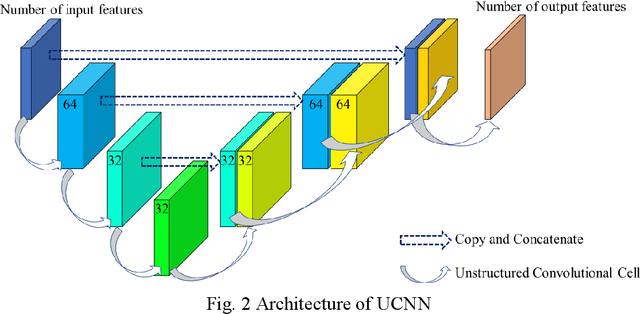UCNN: A Convolutional Strategy on Unstructured Mesh
Paper and Code
Jan 12, 2021



In machine learning for fluid mechanics, fully-connected neural network (FNN) only uses the local features for modelling, while the convolutional neural network (CNN) cannot be applied to data on structured/unstructured mesh. In order to overcome the limitations of FNN and CNN, the unstructured convolutional neural network (UCNN) is proposed, which aggregates and effectively exploits the features of neighbour nodes through the weight function. Adjoint vector modelling is taken as the task to study the performance of UCNN. The mapping function from flow-field features to adjoint vector is constructed through efficient parallel implementation on GPU. The modelling capability of UCNN is compared with that of FNN on validation set and in aerodynamic shape optimization at test case. The influence of mesh changing on the modelling capability of UCNN is further studied. The results indicate that UCNN is more accurate in modelling process.
 Add to Chrome
Add to Chrome Add to Firefox
Add to Firefox Add to Edge
Add to Edge